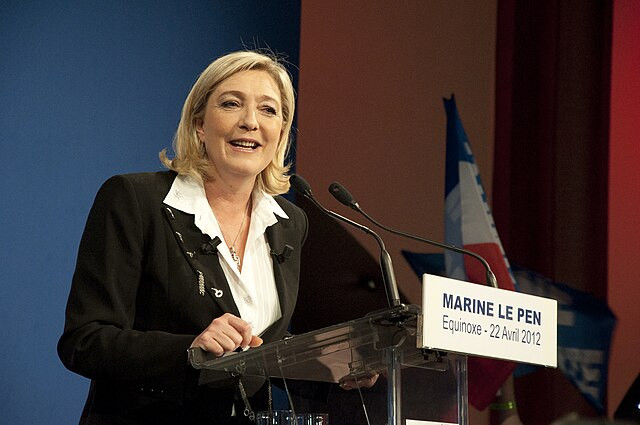A Paris judge who barred far-right leader Marine Le Pen from seeking public office is under police protection following a torrent of death threats and personal attacks that have intensified France's ongoing reckoning with the politicization of its judiciary. The threats were issued after the criminal court convicted Le Pen of misappropriating European Union funds, sentencing her to four years in prison and imposing a five-year ban from holding public office-a ruling that jeopardizes her expected candidacy in the 2027 presidential election.
The judge, Bénédicte de Perthuis, president of the three-judge panel that issued Monday's ruling, became a lightning rod for far-right anger after her home address was posted online and her photograph circulated widely on social media platforms and far-right websites. "Attacking the judicial system is not only an attack on judges, but also on the foundations of our democracy," Christophe Soulard, president of the Court of Cassation, told Le Monde. "Judges today are being attacked personally, particularly on social media, which is a new phenomenon."
The threats have sparked a national backlash. Prime Minister François Bayrou expressed "unconditional support" for the judges during a session of the National Assembly. Justice Minister Gérald Darmanin similarly condemned the threats, while unions representing French magistrates described the incidents as "unworthy of a democratic state." The Paris police confirmed an investigation is underway.
The case has drawn attention from across the political spectrum in France and abroad. U.S. President Donald Trump and Elon Musk publicly denounced the ruling. Musk, whose recent financial backing of Le Pen's opponent in Wisconsin's Supreme Court election drew scrutiny in the U.S., called the French verdict an example of the "radical left's abuse of power." At home, Le Pen said in Parliament the ruling was a "nuclear bomb" launched by "the system."
Le Pen has filed an appeal and vowed to challenge the verdict through legal channels. Speaking to Le Parisien, she said the case "creates irreparable harm" and plans to escalate the matter to the European Court of Human Rights. Her party, the National Rally (RN), has described the ruling as an establishment effort to sabotage her political ambitions.
Polls conducted by Odoxa following the ruling found that nearly 90% of RN supporters believe Le Pen was treated unfairly, while a slight majority of the French public viewed the trial as fair. Despite the backlash, Le Pen condemned the threats against the judiciary and denied encouraging retaliation. "All those subject to the law have the right to appeal," President Emmanuel Macron said in a Cabinet meeting Wednesday, while reaffirming that "France's judiciary is independent and judges must be protected."
The Paris Court of Appeal announced it would examine Le Pen's case "within a timeframe that should allow a decision to be reached in the summer of 2026." That timeline could leave her legally eligible to run in the 2027 election if the ruling is overturned. Reacting to the development, Le Pen said, "Very good news," while stressing the legal uncertainty continues to cause "turmoil."
Legal analysts note that the appeals process could influence both political strategy and voter perception in the lead-up to 2027. Should Le Pen lose her appeal, RN party officials are expected to pivot toward Jordan Bardella, a 29-year-old party figure and potential successor with a growing media presence.
In the meantime, threats against judicial officials have reignited longstanding tensions about the role of the courts in politically charged cases. French bar associations warned that "naming, personal questioning or threats targeting magistrates constitute a serious attack on the independence of the judiciary, a fundamental principle of the rule of law."




